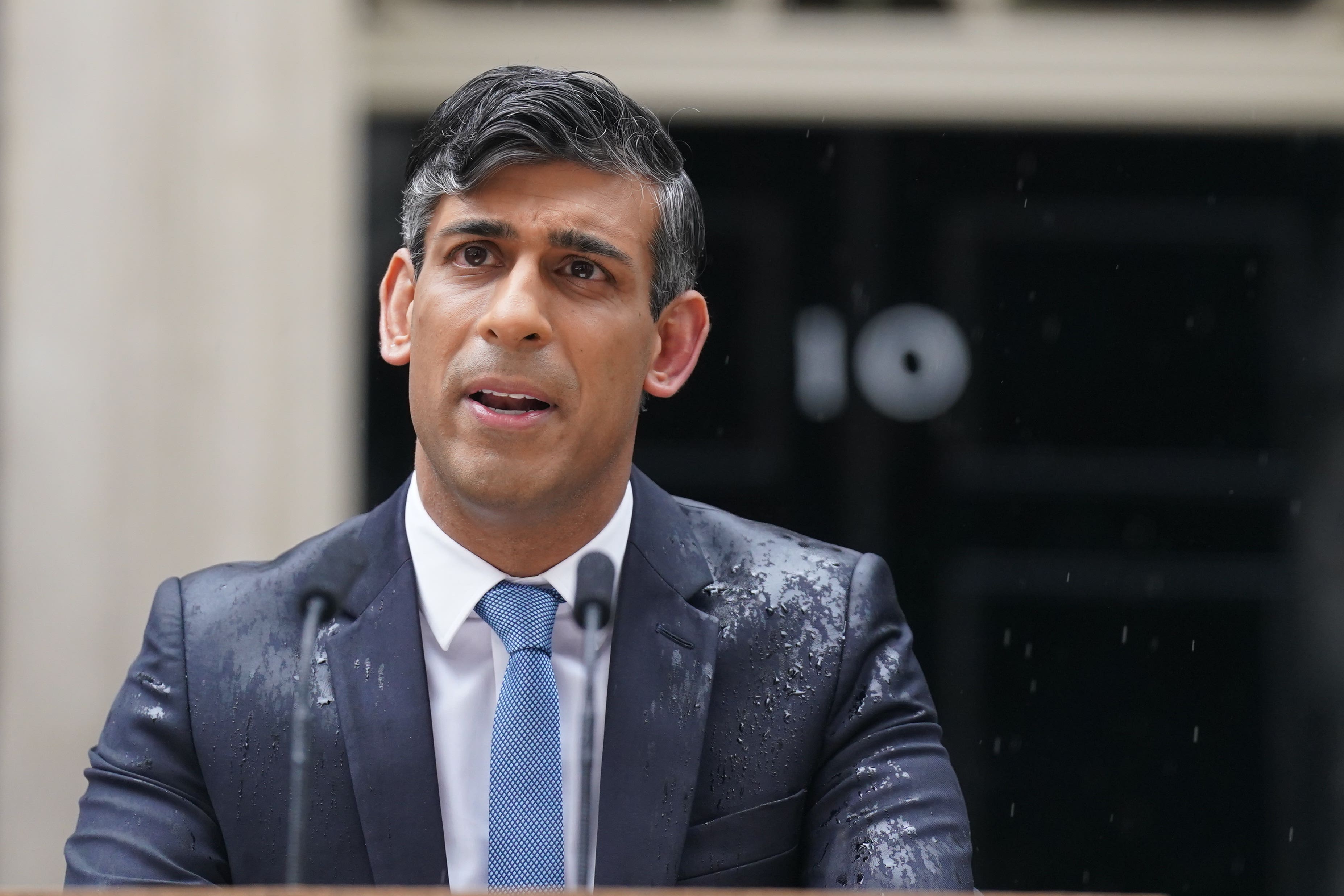Rishi Sunak’s biggest opponent at the general election will be the British public
Editorial: Lee Anderson once reflected that the Tories won in 2019 because of ‘Boris, Brexit and Corbyn’ – this summer, they will have only their record of failures

Oppositions don’t win elections; governments lose them.” As political adages go, it is as reliable as any and suggests itself readily to describe the likely shape of the British general election of 2024. And this government looks set to lose this election in spectacular and historic fashion.
Labour, to be sure, has indeed transformed itself from the messy organisation that lost so calamitously in 2019. Sir Keir Starmer and his colleagues have done as much as any opposition in history to present themselves as a competent government-in-waiting, and their senior personnel are as impressive as their opposite numbers. Put at its simplest, the voters are no longer so frightened by Labour as to feel they are obliged to vote Tory.
Yet it is the Conservatives who have squandered the formidable political advantages they possessed after the December 2019 general election. It takes an effort, now, to recall quite how dominant a position they then held. Boris Johnson, albeit on a false prospectus, had won their biggest vote share since 1979, and secured their largest Commons majority since Margaret Thatcher’s hat-trick win in 1987.
The British people were far from inspired by Brexit, but, exhausted by the arguments, they responded to the call to “Get Brexit Done”. People in the so-called red wall who felt “left behind” were inspired by the boosterish talk of “levelling up”. Improbable promises about tax cuts and improving public services were made, and taken on trust. So popular was Mr Johnson that he went on to win a by-election in Hartlepool in 2021, a result that led Sir Keir to consider resignation. Labour looked to be out for a generation, and Mr Johnson was reportedly making plans for the 2030s.
Now the whole world is turned upside down. As Lee Anderson, one of the more remarkable personalities to emerge from the populist phenomenon, once reflected, in 2019 the Tories won because of “Boris, Brexit and Corbyn”. Now all of those winning elements in their electoral success are either absent or have become substantial negatives.
Labour’s nominee for the premiership five years ago, Jeremy Corbyn, won’t even be a Labour candidate at this general election, and may not even make it to cause trouble as an independent backbencher.
Mr Johnson’s charisma and cheerful cakeism started to turn sour long before Partygate and being found to have lied to parliament. Rather like Mr Corbyn, it doesn’t seem that he will be a Conservative candidate at this election and, aside from the odd guest appearance, will be absent from the scene. Many voters will be grateful that he made the vaccine rollout a success; but his tardy and inadequate record in responding to the pandemic has been exposed by the public inquiry. He has now become more of an embarrassment to his party than its greatest asset.
Much the same may be said about the project that has defined the party since David Cameron launched and lost the 2016 EU referendum. The voters, on balance, now consider Brexit to have been an error, if not a disaster, and its failure is bringing the Tories down with it. It won’t be an issue at this election, because none of the main parties want to reopen the wounds and advocate rejoining; but Brexit, and its baleful legacy, is the silent context to all that will unfold in the coming weeks. Whatever credibility the party had left after Mr Johnson had finished with it was shredded by Liz Truss and her notorious mini-Budget.
Mr Sunak looked somewhat beleaguered and washed out in the rain at the Downing Street podium – an irresistible metaphor for the serial incompetence his administration has suffered from extends even to this formality, his words struggling to overcome a distant rendition of the New Labour campaign song "Things Can Only Get Better”.
All he has to offer is a mixed record in office, a painfully divided party, the Rwanda project to deport refugees, and a slogan: “Stick to the plan.” However, as one Conservative strategist put it some years ago, “slogans can’t create moods; they can only capture them”.
From now until 4 July, Mr Sunak’s most formidable enemy won’t be Sir Keir, Nigel Farage, Richard Tice, Sir Ed Davey or any other single politician or party, but the settled mood of the country, captured by Labour in its own slogan: time for change.



Join our commenting forum
Join thought-provoking conversations, follow other Independent readers and see their replies
Comments